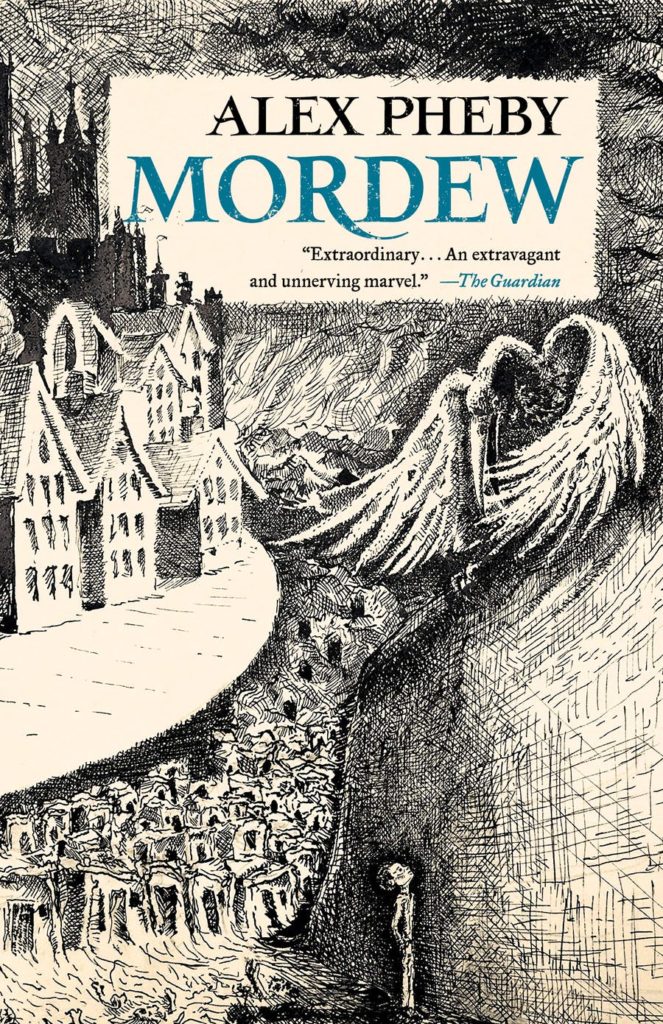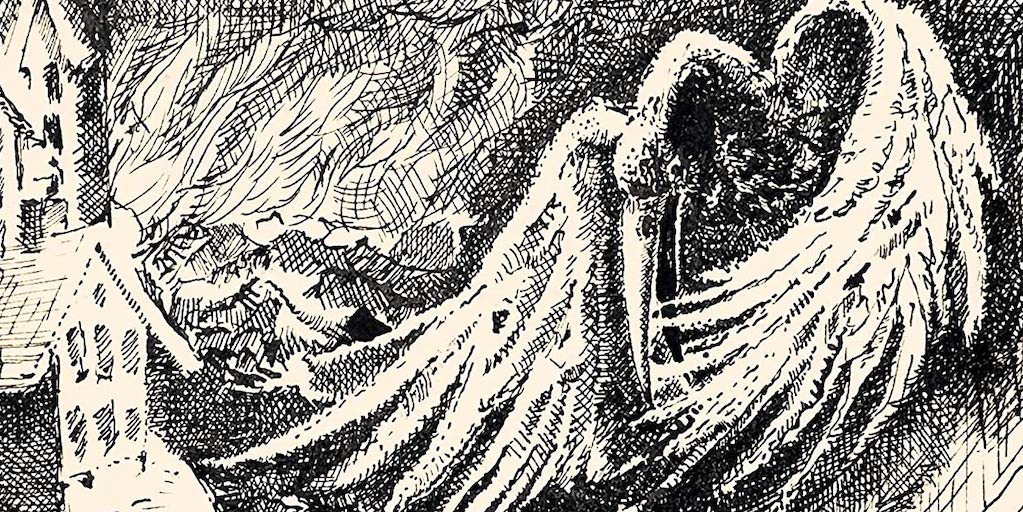Mordew is deceptively familiar.
Alex Pheby’s brutal gothic fantasy about power and corruption seems, on the surface, like so many other books: it has a young hero with a mysterious and destructive power, a wretched hive of a city as vibrant as it is dangerous, and a complex set of shifting factions and alliances. But while Mordew may start out familiar, with its heroic fantasy beginnings, Dickensian tone, and sense of an expansive, dangerous world, Pheby has a much different destination in mind. By changing up the “chosen one” narrative, inventing a magic system full of wall-to-wall body horror and nightmare fuel, and, most importantly, a good deal of pathos and sympathy that turn the monsters of Mordew into more tragic figures than out and out horrors, Pheby creates a darker and more complex gothic fantasy, one that ruthlessly shreds fantasy tropes as it unfolds in a vast downward spiral.
On the coast of a post-apocalyptic Paris lies the city of Mordew, a sprawling hive of a metropolis protected by the massive Seawall and flooded in its lower districts with the Living Mud. In the slums of this city lives Nathan Treeves, a destitute young man who makes his trade using magic to pull resurrected creatures out of the primordial ooze around his home and selling them to the local tannery. But fate has larger things in store for Nathan, as his powers catch the attention of greater forces, from local crime lords to unscrupulous nobles and even the Master of Mordew himself. Soon Nathan finds himself an unwitting pawn in a series of overlapping schemes and gambits, all of which use his destructive gifts for their own twisted ends. Caught between powers beyond his comprehension, Nathan must rely on his magic, a shifting group of allies, and a variety of strange creatures to find his way out of his enemies’ clutches–even if it destroys both the city of Mordew and Nathan himself in the process.

So many “chosen one” narratives overlook the question of who does the choosing, and why the chosen is deemed worthy. Nathan Treeves, the protagonist (calling him a hero is giving him too much credit, and doesn’t gel with the number of monstrous things he does, wittingly or unwittingly), is very much a chosen one, and the who and why are incredibly important. Nathan spends a large portion of the book being “chosen” by unsavory and powerful manipulators, who all assure him they have his best interests at heart when it’s clear they just value his power. Why they choose him has more to do with the fact that he’s a naive young man with wells of unstable raw power and no idea how to use it, making him an ideal pawn in a variety of schemes between the Masters, Mistresses, and crime bosses in the dismally horrifying world he inhabits. Pheby further drives this home by having Nathan accumulate a variety of things that normally evil overlords would have: knives with murderous intent, black dogs capable of human speech, and a variety of magical trinkets that run on fresh tears and significant quantities of human blood. It’s definitely unnerving to watch Nathan pave his own road to Hell, but there’s enough familiarity and pathos in Nathan himself that watching his twisted “chosen one” narrative play out seems as tragic as it is disturbing.
That pathos is just as important, as the book is about power in all its most seductive and dangerous forms. Nathan might commit atrocities, true, but he’s a tragic monster at best, manipulated by higher forces and seduced by finally having the ability to fight back against those who have antagonized him his whole life. If that pathos wasn’t there, if we didn’t see Nathan as out of his depth, the book would just be a rolling list of horrible things Nathan and his friends and enemies do with their various powers. But because we get to see Nathan fall, see him yanked around by people like the Master, the Mistress, Padge, and his mother, the horror strikes a much more affecting chord. There have been situations in all our lives where we feel powerless, and there’s no one on Earth who hasn’t entertained the occasional power or revenge fantasy. But by showing Nathan as someone who is good but fundamentally flawed, and then having him destroyed both morally and physically by both his own revenge fantasies and the people willing to use him as a pawn in their own schemes, the context is a lot clearer: this could happen to anyone, given the right circumstances. Power can be remarkably liberating, but it can also be abused.
It’s this conceit that makes Mordew so tragic and terrifying. Sure, the magic powers wielded by the book’s factions can do a lot of good–Nathan heals his friends and is able to create life out of the city’s “living mud,” for example–but the toll maguc takes on those who use it is very much front and center. This ranges from near-fatal body horror to large portions of the world being altered for the worse because two people are having a nasty divorce, and the simple fact that no one “gifted” with magic powers actually seems particularly happy (even when they know how to use them). Sure, there’s power too, but Alex Pheby is one of the rare authors who can write about the curse of power without making it look even the slightest bit cool. Not only do Nathan’s powers cause him horrible infections and cause him to waste away, but even the few helpful things he does with his power are somehow terrifying, creating everything from a baby made out of hands to a safe that breathes as he cracks it.
Mordew is a gothic fantasy that issues a challenge to the dark fantasy genre as a whole. It’s a vast, epic work that takes fantastical genre conventions and chops them to bits, using them to build a larger and larger pyre. With its unique subversion of the usual fantastic fiction storylines, its brutal exploration of power dynamics, and its command of dramatic pathos, Mordew is a dark epic that will hopefully echo down the line into fantasy novels to come. While it definitely errs on the “dark” side of dark fantasy, it’s a work of absolutely transfixing brutality and strange visuals all anchored around the downfall of a cast of tragic monsters, and should hopefully join the gothic-fantasy canon alongside such luminaries as City of Saints and Madmen, Perdido Street Station, and Gormenghast. At the very least, it’s a can’t-miss work for a certain type of dark fantasy and horror fan, and definitely not a book to sleep on.



